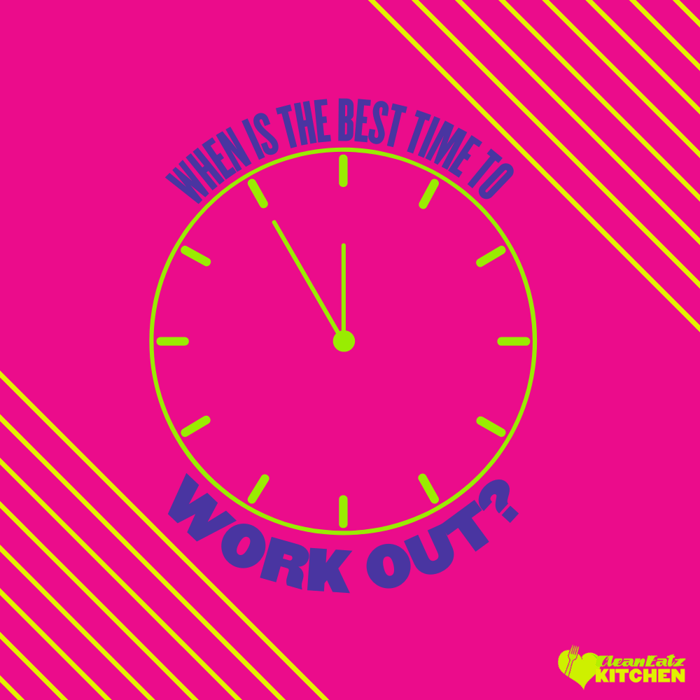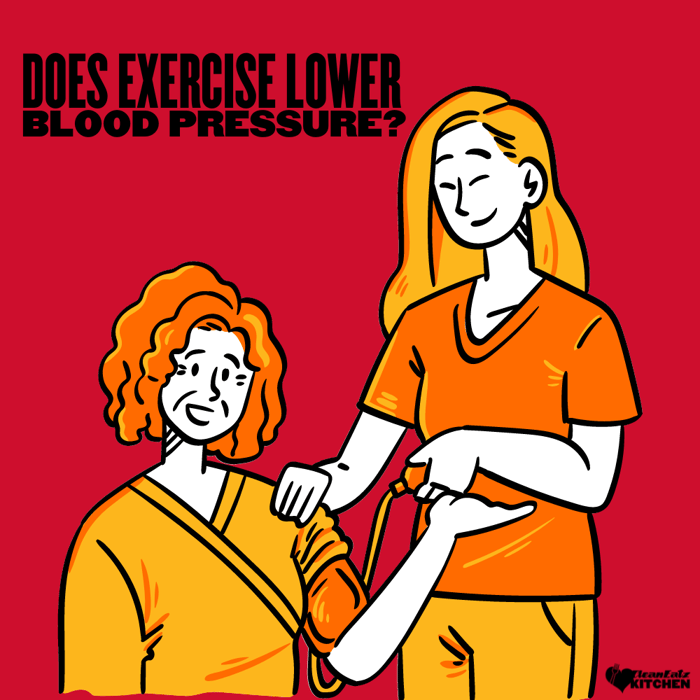
When is the Best Time to Workout?
Jason Nista
Exercises & Fitness
|
Healthy Lifestyle
5 minute read
When is the Best Time to Workout? MORNING VS AFTERNOON EXERCISE
We all know that exercise has numerous benefits to our health and we should do it a bit more often than what we might be doing now. But with tons of other non-fitness-related demands on our plate like work, family, children, friends, school, etc. it can get really really hard to find some time in our schedule to devote to training and physical activity. When is the Best Time to Workout?
On top of that, we might be wondering what would be the best time to work out. Does going early in the morning to start my day off right moves me closer to my goals? Or does an afternoon evening training session be more beneficial for me? There is definitely a lot of information out there and many trends regarding timing and working out So today we’ll take a look into what research says on the benefits of a morning training routine and an afternoon/evening one.
IS THERE REALLY A DIFFERENCE?
You might be thinking that the most important thing is to actually get the workouts done regardless of the time of the day. And you might be right. The benefits of exercise will be apparent to anyone that trains regularly and won't be negated by the time of the day they get their session in.
However, some research found some interesting added benefits to different exercise timing:
-
A 12-week study was conducted on men and women who completed 12 weeks of a multimodal training intervention incorporating resistance, interval, stretching, and endurance exercise. There were a few interesting results:
-
In women, morning exercise training elicited greater improvements in body fat and blood pressure. Evening exercise increased upper body muscular performance.
-
In men, evening exercise was more effective for reducing blood pressure and increasing fat oxidation.
-
Another study exploring the effects of a 12-week aerobic and resistance-training program on VO2max, blood lipids, and liver fat in overweight and obese men (>26 BMI, average age of 59) found that exercising in the afternoon led to greater improvements in metabolic factors.
-
Fasting plasma glucose decreased in the afternoon group and increased in the morning group
-
Peripheral glucose uptake and glucose oxidation increased in the afternoon group and decreased slightly in the morning group.
-
Insulin-mediated suppression of plasma free fatty acids (a marker of insulin sensitivity in adipose tissue) increased in the afternoon group.
-
Compared to the morning group, the afternoon group saw greater decreases in fat mass and body fat percentage.
-
However, another study found that HIIT-type exercises performed in the morning were better for improving blood glucose levels in people with type 2 diabetes after a couple of weeks of getting acclimated to the training regime. This can be an important tool to manage the disease of people with T2D
-
Morning exercise has shown to be beneficial to prevent obesity for example one study found that women who were more active in the morning had a lesser risk of obesity and associated health conditions. It has also been shown in another article that people who exercise in the morning are less likely to skip the session and might have an easier time developing the habit of frequent exercise.
-
Another concern about training later in the day might be that it could affect sleep. However research shows that evening exercise does not affect sleep directly, on the contrary, might benefit from getting better and deeper sleep, falling asleep faster, and staying asleep without waking up at night. All of these provided that the last vigorous training session ends at least 2-4 hours before bedtime.
MAIN TAKEAWAYS
Whether you’re a night owl or a morning person the most important thing is to find a time of the day for your training that is sustainable for you and makes you feel better and more energetic. However, if you want to experiment with exercise timing and reaping specific benefits here are a few guidelines.
-
If you prefer your training session in the morning you might benefit from improved glucose levels in your blood during the day, an easier time adjusting to your routine and not skipping training sessions, lower body fat and blood pressure, and less risk of becoming obese.
-
If you prefer to get your workouts done in the evening you might benefit from better metabolic health, improved insulin sensitivity, and blood glucose levels if you have type 2 diabetes.
-
Keep in mind that in order to not disrupt sleep and actually benefit your night's rest you should finish your training session 2-4 hours before bedtime
-
Try keeping a sleeping journal to monitor your energy levels, hours of sleep, and overall feeling to make sure you’re not harming your rest.
-
On the same subject of tracking and measuring, make sure you objectively assess the results you’re getting from your exercise timing and be prepared to make adjustments if not seeing the benefits you were hoping for after a few weeks.
Related Articles
Is Honey Good for Weight Loss?
7 minute read
Can My Dog Help Me Lose Weight?
6 minute read



